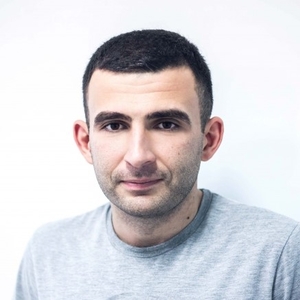Study
The aim of the course is the introduction to the basic concepts and theoretical methods used in the problems of modern quantum mechanics and condensed matter physics.
The course is divided in two parts. In the first part, we will thoroughly study the theoretical methods of solving single-particle problems in quantum mechanics: tight-binding approximation for finding the spectrum of periodic systems such as crystals, different methods in time-dependent perturbation theory to study optical properties of quantum systems. Moreover, students will get acquainted with the concept of topology in quantum mechanics.
The second part is dedicated to the basic methods of studying many-body interactions in quantum mechanics. Using the basic problems as examples, we will discuss the simplest yet effective methods of the mean field approximation, diagrammatic technique and path integrals.
Part 1. Single particle QM methods
- Tight binding approximation. Crystall energy spectra
- Time-periodic perturbation. Floquet theory
- Topology concept in QM. Quantum Hall effects (conventional, anomalous, spin etc…). Topological invariants
- Density matrix. Pure and mixed states.
- Time evolution pictures. Schrodinger, Heisenberg and interaction pictures. Series expansion of time evolution operator in interaction picture
- Linear response theory. Kubo formula. Electric and magnetic permeabilities of quantum systems.
Part II. Introduction to many-body problems in QM
- Second quantization. Occupation number formalism. Many body wavefunction and operator representations.
- Mean field theory. Phase transitions.
- Basics of diagramm technique. Partial summation. Hartree-Fock approximation for interacting electrons and its relation to mean field. Random phase approximation.
- Basics of path integral approaches. Harmonic oscillator on the language of path integrals. Stratonovich transformation. Anharmonic oscillator.
1. J.J. Sakurai, Modern Quantum Mechanics
2. P. Coleman, Introduction to Many body physics
3. H. Bruus, K. Flensberg, Introduction to many body quantum mechanics.
Grading Policy.
- Mid-Term Attestation.
The grading for the MidTerm Attestation is in the range from 2 to 5 and is based on the oral exam. List of questions for the oral exam is attached and includes the topics of the undergraduate QM course. During the exam, the ability of solving simple problems rather than knowing the material by heart will be checked.
Colloquim questions:
1. Postulates of QM. Uncertainty principle. Commutation relations.
2. Schrodinger equation solutions for square well, harmonics oscillator (coherent states) and
hydrogen atom.
3. Periodic Potential. Bloch Theorem. Band structure.
4. Angular Momentum and Spin. Pauli Matrices.
5. Fermi-Dirac and Bose statistics.
6. Perturbation Theory – time independent
7. Time dependent perturbation theory.
- End-Term Attestation.
The grading is in the range from 2 to 5 and is based on the oral exam.
In order to qualify for the oral exam, a student should: a) solve >50% homeworks, (b) pass the written test (>60%).

